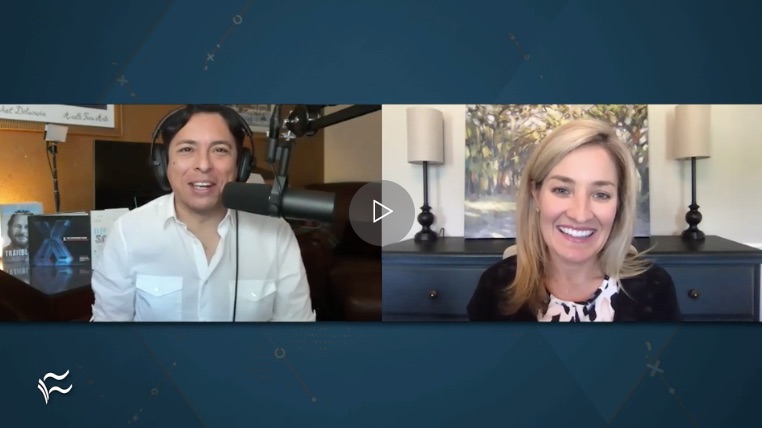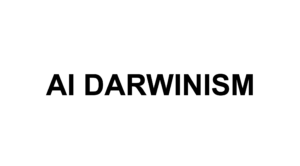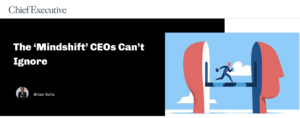
Karen Roby is a long-time friend and also a reporter for TechRepublic/CBS Interactive. Every now and then, we spend time together exploring the future of digital transformation and innovation. After I joined Salesforce, she invited me on her show to talk about my new areas of research and thought leadership. I wanted to share our conversation with you here.
TechRepublic’s Karen Roby talked with analyst Brian Solis about the impact of COVID-19 on digital transformation. The following is an edited transcript of their conversation.
Karen Roby: Brian, you’ve added a new title, which I think is really interesting, we can talk a little bit about, global innovation evangelist for Salesforce. What does that mean?
Brian Solis: It means that I have to look at all of the trends happening in the market and essentially try to make sense of them, humanize them, so that executives, stakeholders, and even our own ohana, our own team, can help humanize the next steps of our customers and our partners because these are certainly interesting times. And there’s a lot of new things to think about, and so my work is to study those trends and help not only make sense of them, but put them into actionable steps so that we can move forward in more productive and creative directions.
SEE: Coronavirus: Critical IT policies and tools every business needs (TechRepublic Premium)
Karen Roby: There’s no time like the present because we are really in uncertain times, and all looking to each other in different ways to see what will come next. Well, one of the things that we’ve talked about before, this concept of novel economy. Talk a little bit about that, how this is giving a new name to this new normal that we’re now in.
Brian Solis: Well, as you and I have talked about so many times, digital transformation leading into this COVID-19 life event, digital transformation was on everybody’s minds. But it meant a million things to a million different people. What was clear that was that when the pandemic struck, digital transformation itself was digitally disrupted. And you could see almost overnight areas that were exposed in terms of weakness, like remote work, e-commerce. And so essentially, while everybody was scrambling, essentially the keywords were business continuity, I wanted to think productively about this moment in time and what it was going to mean thinking forward.
I took a step back and started to just accept that this virus was going to be with us for 12 to 18 months. Until there was a treatment, a universal treatment, and eventually, hopefully a vaccine, that these times were going to be completely new as long as 24 to 36 months from now. As a result, I couldn’t just think about it as the new normal. I wanted to move forward and start thinking about ways to operate in this environment. So I gave it a name, the novel economy, because novel means new and unusual. These are certainly new and unusual times that we don’t have a playbook for, that we don’t have case studies to follow.
Essentially, we get to invent forward, and it’s the optimist in me that wanted to help be a voice to put together what could be a construct for moving forward. Thinking beyond just business continuity is looking at, let’s just say that March 1 would be the day that we could start looking at everything from new employee behaviors to customer behaviors. How would we see those insights differently to rebuild, and then also invent and innovate moving forward? I broke those stages down into Survive, which is basically now, moving into Alive, which is the next, let’s say the next 10 to 12 months. Then Thrive, which is somewhere along that time, we also start seeing opportunities for growth, new doors to open up to new possibilities and opportunities.
Then I sort of talked about this, well, on ZDNet, the novel economy is broken out into technology stages. How should we think about making new investments in cloud, in software, in automation, that allows us to be much more agile and to think differently? And then also, business constructs support that new agility in moving forward. And then lastly, it was really a chance, just the human being in me, to cast the conversation in a positive light. Instead of everything being so just bleak and dark and elusive, let’s productively move forward because we have no choice. I talked about the stoic philosophy and how you can’t control life events, but you can control how you react.
Karen Roby: How do you see roles in companies like CEO, CIO, and CFO changing?
Brian Solis: In any disruptive event, it’s natural to batten down the hatches, control costs, and explore ways to cut costs. And unfortunately, we see this in every level from employees, to assets, to technology. The CFO is essentially in control right now, and rightly so. The thing, though, is that before the pandemic, I used to talk about it in a loving way, of course, this, I called it out-of-touch-ness, which was essentially, executives in many ways focused on shareholder value, on making decisions based on the matrix, or spreadsheets, or visualized data. And we sort of lost the humanity in a lot of this.
When you’re driven by numbers, you work toward those numbers. I actually believe that if you put the CFO in control, the CFO’s going to make decisions, of course, based on costs and numbers, like they should. But this isn’t necessarily just a time to say, “OK. We’re going to hold down the fort, cut costs. And then when this all clears, we’re going to come back out stronger than ever,” because we’re not going back to normal. And normal was actually part of the problem to begin with.
We’re moving in a new direction, and this new direction, this novel economy’s going to be defined by the people who define it. And they’re the ones who are going to be making investments, doubling down on opportunities like understanding customer experience, understanding how to help optimize productivity with the employee experience, and also happiness, and also wellness. And then also looking at ways to invent because in a novel economy that’s new and unusual, we don’t know all of the opportunities for growth, and we have to pay attention to those.
For example, I’ve had several conversations with CXOs, who are all talking about: How we think about technology moving forward. Is it a cost center? What’s our digital transformation strategy moving forward? And the best answer I can give is whatever was happening pre-March 1, you have to really look at it through a new lens. The customer is changing right now, and has been since March 1. Employees, when they were all sent home to work from home, everything changed. And that is sowing new behaviors and many other things that it’s sowing that we could talk about in a future conversation.
But the CFO’s not going to see those things. It’s not going to recognize unless someone within the organization is making the case on behalf of the voice of the customer and the voice of the employee because technology doesn’t have to be a cost center. In fact, if you think about automation for example, we can look at ways to reduce costs. We could free up employees from repetitive tasks to allow them to be more creative, to think differently about the data they have, for example, and apply (artificial intelligence) AI and machine learning to looking for those new opportunities, new processes, etc.
Then lastly, when we do that, when we get into the Thrive stage of the novel economy, we can see technology as actually not even a cost center, not even just reducing costs, but actually a revenue generator because once you start opening new doors, I call this sort of the bimodal digital transformation. Let’s optimize infrastructure for operational excellence. Then let’s also invest in business model innovation, so that we can activate greater market share, greater share of wallet, greater mind share, in these new times.
Karen Roby: Moving to a work-from-home model nearly overnight has been a real challenge for the enterprise.
Brian Solis: This is why technology is more important than ever before, is that we’re seeing opportunities now that we couldn’t see before just because we were so caught up in the day-to-day operations. The same is true also for customers. They have, when you look at this from a psychological perspective, we all have as human beings, a somatic marker in our life now. This is a life event that will be with us forever. And it’ll be connected to deep visceral emotional responses. We’ll talk about one day what we were doing during these times, and how things are different, to our kids and grandkids. And that’s what’s so important to pay attention to because that work from home, we’ve been doing that to some level, but not at the scale.
E-commerce, we’ve been doing for I don’t know how long, 20, 25 years. And now it’s all different. I published recently some insights based on Salesforce’s global shopping index that showed how online spending had shifted and how it was going to continue to shift. And e-commerce just was on this. It’s always been growing, but now it was on this trajectory to become a huge percentage of total sales because even as the economy opens up, people are still going to think, “Well, do I really need to go out? Or can I just click here and get what I need?”
All of these things, this is why CIOs, CEOs, CFOs, have to pay attention to the reality that truly drives digital transformation is the human side of the story. And this is all changing, so everything that we were doing up until this point, it gives us a strong foundation and experience, of course. But now, this is time for innovation. And this is time for human-centered innovation.
SEE: Digital transformation: Why companies need a sense of urgency (TechRepublic)
Karen Roby: What would be a little quick snippet, words of advice, if you could kind of summarize, or give us a positive message to end this on, what would you say?
Brian Solis: Two quick things: Yesterday, we released a COVID-19 response playbook. Personally, I was moved by it because it’s a blueprint for opening up the economy. And the second part that I want to leave you with is that as we reopen the economy, we have to remember that there’s a live virus still out there. And we have to think differently, and not just differently, but we really do have to think about people, stakeholders, customers, employees, partners, like never before. They have to be front and center of all of the decisions that we make, and realize that this is all new. We are all the architects of the future right now.
Whatever we talked about the future of work, the future of retail, the future of business, we’re rewriting it right now. And what a wonderful opportunity.
Look, I get it. These are scary, uncertain times. I get it. But certainty has never been guaranteed. Now we have an opportunity to invent the future we’ve always wanted to see. I’m here to help you, and if you need anything, let me know. I want to learn from you, too.
This interview is republished from TechRepublic.

Brian Solis | Author, Keynote Speaker, Futurist
Brian Solis is world-renowned digital analyst, anthropologist and futurist. He is also a sought-after keynote speaker and an 8x best-selling author. In his new book, Lifescale: How to live a more creative, productive and happy life, Brian tackles the struggles of living in a world rife with constant digital distractions. His previous books, X: The Experience When Business Meets Design and What’s the Future of Business explore the future of customer and user experience design and modernizing customer engagement in the four moments of truth.
Invite him to speak at your next event or bring him in to your organization to inspire colleagues, executives and boards of directors.





Leave a Reply